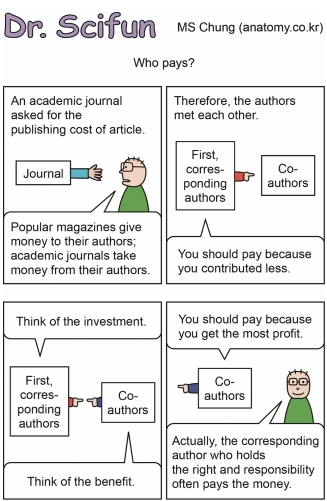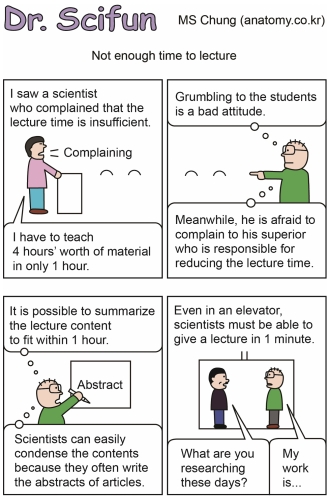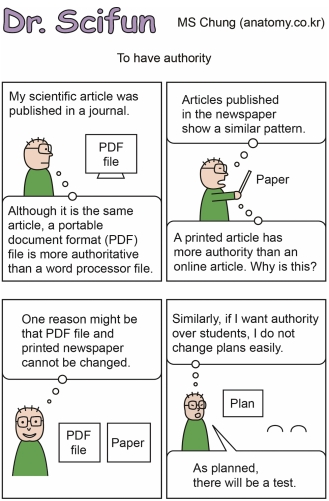Materials and methods
Article information

When I teach my students to write an article, I make them write the materials and methods section first. Then they write the results, followed by the introduction and discussion. The “materials and methods, results” sections do not vary much depending on the writer, whereas the “introduction and discussion” sections can be quite different. Of course, the more experience the students have, the better they can write.

Suppose a university (or a research center) is filming a promotional video. The videographer would film scientists as they conduct experiments, not as they work on articles. This might be because conducting experiments would make the scientists look hardworking. In contrast, writing articles would make them look sluggish, even though writing articles is actually trickier.

In reality, unlike what this comic strip tells, the authors try to be the one who pays for the fee associated with journal publishing. This fee is just a small amount of money compared to the gain from the journal article. Moreover, the authors often receive financial support from their institutions or research foundations. In general, scientists publishing articles are not poor.

Sometimes in an elevator, people ask me how I am doing. When I am not in a good mood, I reply, “Ask more specifically about what you want to know. In terms of what? Education, research, or something else?” When you meet someone in an elevator, make your question short and specific, and you will promptly find out what you are curious about. Time matters.

When teaching students, changing your plans frequently may undermine your authority. A student might ask you to postpone the test date for no objective reason. If you accept that request, it will be hard for you to decline next time. Therefore, do not move your test date, except in cases of natural disasters or similar emergencies. You need to stand up for your authority through consistency.
Notes
Conflict of Interest
No potential conflict of interest relevant to this article was reported.
